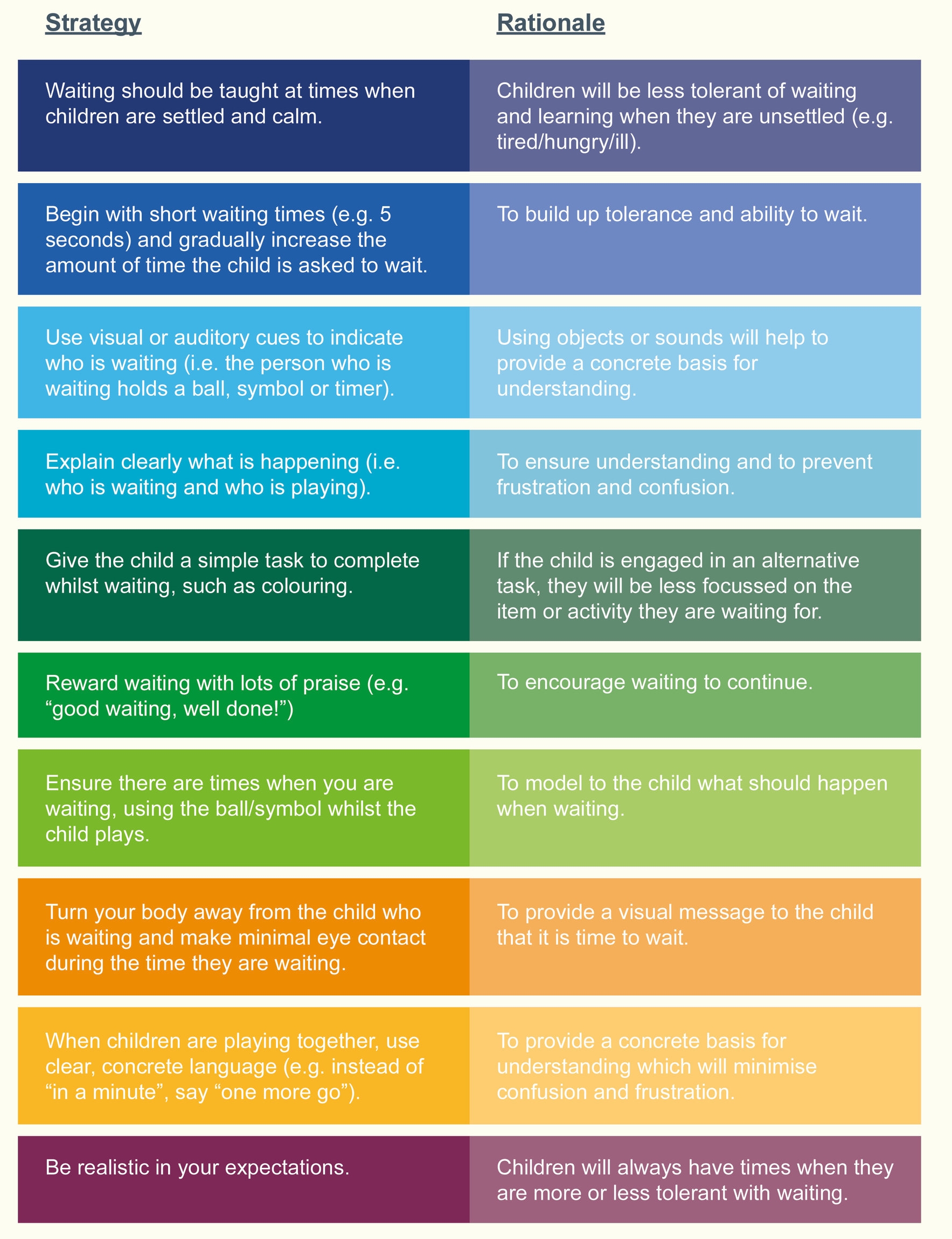learning disabilities
Waiting and Turn-Taking in Young People with a Learning Disability
Introduction
Children and young people with learning disabilities can sometimes find waiting and turn-taking with peers or siblings difficult. This page aims to provide information and strategies for parents to enable their child to build up a greater tolerance to waiting, and improve their turn-taking skills. But why is waiting difficult?
Children and young people with learning disabilities can sometimes find waiting and turn-taking with peers or siblings difficult. This page aims to provide information and strategies for parents to enable their child to build up a greater tolerance to waiting, and improve their turn-taking skills.
Why is waiting difficult?
UNDERSTANDING
Children with learning disabilities may have difficulties with problem solving, learning new information, generalising learning to different situations and with communication (i.e. understanding and processing what is being said and expressing their own needs). This will affect their ability to be flexible and reduce their tolerance for waiting.
Children with learning disabilities tend to understand the world from their own perspective. They may therefore find it difficult to take other people’s viewpoints into account, reducing their ability to understand that others also want to play with a particular toy. This will affect their ability to turn-take effectively.
CONCEPT OF TIME
Children and young people with learning disabilities tend to have a concrete understanding. Many children with learning disabilities struggle to understand abstract concepts, or things they cannot see, such as time. They will therefore find it difficult to imagine how long they will have to wait. Phrases such as ‘in a minute’ or ‘later’ will not be meaningful and can lead to frustration.
When to consider asking for more specialist help
CONSIDER SEEKING HELP:
- You have already followed the advice on this page (see 'Useful Strategies').
Difficulties persist that have a negative impact.
You may want to talk to a teacher, social worker, paediatrician or clinical psychologist for further advice and guidance. It may be appropriate to ask for a referral to LD-CAMHS if the young person is starting to exhibit challenging behaviour.
Useful strategies
Further support, advice and self-help
The National Autistic Society provides information and support for people with Autism and their families and for professionals. They are a very active organisation and offer some really useful information about strategies and approaches for supporting people with Autism.
Website
The British Institute of Learning Disabilities also have some useful information and further advice about a variety of common issues.
Website
Local Offer is a Derbyshire-specific site which allows you to search for lots of different services, including parenting support groups, in the local area.
Website


